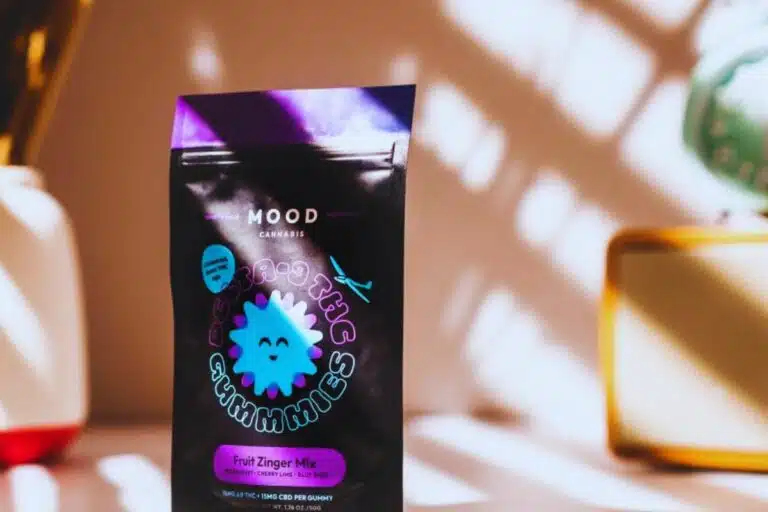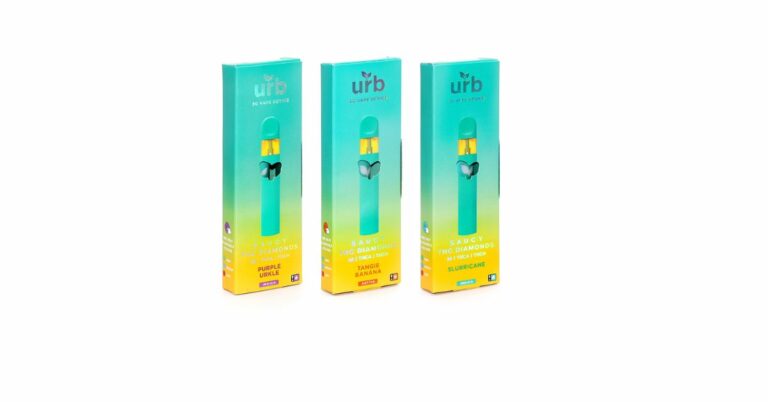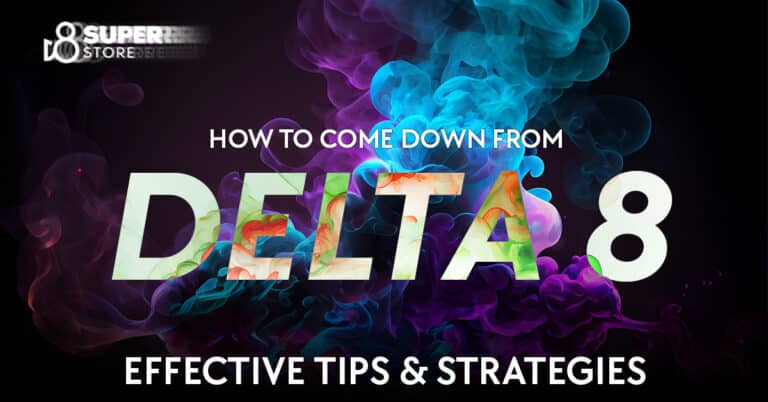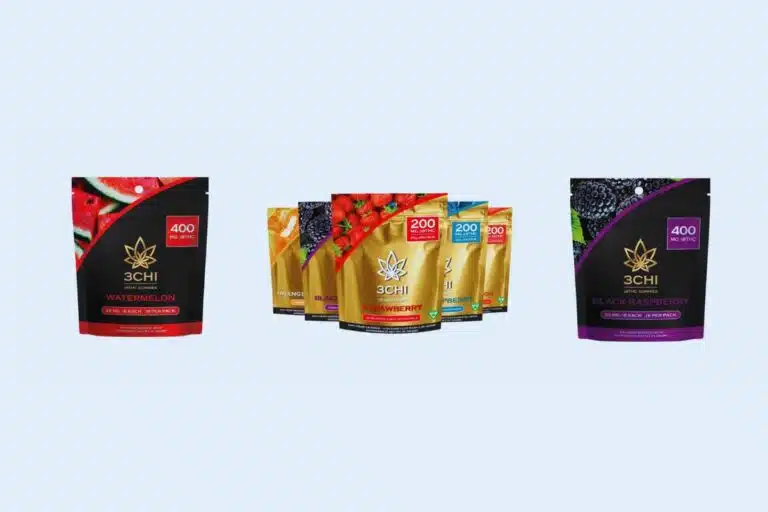Is Gas Station Weed Safe? Understanding Risks and Safety Measures
It was not so long ago that the availability of Delta-8 products (or “gas station weed”), which are often marketed as a legal alternative to marijuana, in spots like gas stations, convenience stores, and vape shops would have seemed rather odd.
Today, products including Kratom, Delta-8, HHC, and THCa are readily available over-the-counter in these venues. While these products are not illegal, they are not regulated or FDA-approved, leaving customers to purchase at their own risk.
Table of contents
It’s a risky affair for all involved — The makers of these products often skirt the law. The consumer on the other end never knows what dose they’re putting into their body or how they would react.
The internet is filled with pretty good memes about the dangers of ‘gas station weed‘. However, the safety risks that come with gas station weed are anything but comical. This guide will help you understand these safety risks and how best to steer clear of complications:
Risks associated with Gas Station Weed (Delta-8 THC)
Often labeled as Delta-8 THC, gas station weed is a hemp-derived psychoactive compound usually marketed and sold as a ‘legal’ alternative to marijuana. As mentioned, that it is not illegal does not make it safe for consumption, especially as it is unregulated and not FDA-approved.
But that it is readily available does not make it free from dangers. Indulging in Gas Station Weed could therefore spell risks to physical and mental health, such as:
Health risks
Health risks including anxiety, psychosis, and addictions are some of the inherent risks in taking gas station weed. Since Delta-8, a psychoactive compound, binds to the same receptors as THC, it could well trigger similar psychoactive effects.
Alabama doctors have warned that it can cause addiction. But this risk is even more in the case of young adults and teens whose brains are not fully developed. Regular users of gas station weed have been reported to experience paranoia, and even psychosis (where the victim loses touch with reality)
Some users have experienced erratic or violent behavior, likely caused by unregulated chemical blends or an overdose.
Unregulated and untested
As they are unregulated, Delta-8 products are not approved by the FDA for safety or quality. This means manufacturers are not required to test for contaminants, for example, pesticides, heavy metals, or leftover solvents from production. For you as a consumer, this means taking a huge gamble on your health.
Misleading packaging
Another spin-off of the lack of gas station weed regulation is misleading product labeling. Very often, these products use cartoon-like, flashy designs to appeal to young users.
The package may claim “natural” or “lab-tested” without any real proof to back it up. Others may lack a clear dosage instruction which may lead to unintended overdosing. In the worst case, some may contain lab-made cannabinoids that may do far more harm to the body than natural THC.
Untrained sellers
Sellers in convenience stores and gas stations know next to nothing about cannabis products and cannot vet them or recommend based on your requirements. They know next to nothing about the products, their ingredients, dosing, functions, side effects, or even when a product is expired. This is unlike licensed dispensaries which follow safety precautions and can use their knowledge of these products to guide your usage.
Safety measures and precautions for Cannabis use

| Category | Safety Measures & Precautions |
|---|---|
| Product Legitimacy | Check if the gas station is legally allowed to sell cannabis products. Look for state compliance labels. |
| Brand Reputation | Research the brand online to ensure it’s reputable and has third-party lab testing. |
| Lab Testing & COA | Always check for a Certificate of Analysis (COA) to verify THC/CBD levels and safety from contaminants. |
| Ingredients Check | Avoid products with harmful additives like Vitamin E acetate, propylene glycol, or synthetic cannabinoids. |
| THC Content | Ensure the THC content is within your tolerance level to prevent accidental overconsumption. |
| Expiration Date | Check for expiry dates to avoid consuming degraded or unsafe products. |
| Packaging & Seal | Never buy cannabis products if the packaging is tampered with or missing a safety seal. |
| Dosage Awareness | Start with a low dose, especially if trying a new brand or product. |
| Side Effects | Be aware of potential effects like dizziness, paranoia, or dry mouth. |
| Consumption Setting | Avoid using cannabis in risky environments, especially if driving or operating machinery. |
| Storage | Store in a cool, dry place away from children and pets. |
| Legal Considerations | Check local laws to ensure cannabis possession and use are legal in your area. |
| Payment Safety | Be cautious with cash transactions. Prefer credit/debit for traceability and safety. |
| Alternative Sources | If in doubt, consider buying from licensed dispensaries for guaranteed quality. |
The health risks that come with indulging in gas station weed call for urgent action, and knowledge must be the first line of defense. These products often contain unknown additives with dangerously high THC levels, which can be addictive, and may cause psychosis, anxiety, or even violent behavior.
One way to tackle this would be to prioritize informing the public and medical practitioners about these dangers. Evidence-based campaigns can also create some clarity around how unchecked THC in gas station weed can harm mental health, as users are not given the right information about THC levels.
Training sessions that include gas station pharmacology will also educate physicians on ways to spot early signs of misuse during routine check-ups. It is also necessary to improve treatment strategies.
For instance, the progress already recorded in the bid to reduce opioid prescriptions will prevent patients from self-medicating with unsafe cannabis. Healthcare systems, on the other hand, should expand access to alternatives like behavioral therapy, CBD-based treatments, or non-addictive options for pain management.
Companies like Altapointe Health Systems should step up in offering targeted support such as substance abuse or counseling programs for users struggling with dependency. These should also be widely promoted to reduce the stigma.
Meanwhile, the buck of responsibility in pushing for sterner regulations that mandate clear labeling and lab testing for all CBD/THC products and banning sales in unlicensed venues stops with Deputy Chief Medical Officers and Health leaders.
It’s a joint effort — one that requires the input of private stakeholders (e.g., doctors, care support workers, and health leaders) to public stakeholders (e.g., the lawmakers, state agencies like the Alabama State Board of Medical Examiners, NGOs, and communities supporting recovery)
Alternatives to Gas Station Weed

We get it: Cannabis products from the convenience store or Gas station are ‘quite the convenience’. But the risks far outweigh the benefits. Unregulated ingredients, unknown potency, and the potential presence of contaminants (since they are often not lab-tested) pose serious health risks.
Consider shopping online or at your licensed local dispensary. Products sourced from these places provide the Certificates of Analysis (COAs) and are transparent about every ingredient that goes into making their product. From Cannabinoid content to lab-tested safety checks for heavy metals or pesticides. Gas station weed products on the other hand slap a vague label on their products that rarely discloses how (or if) their products are tested.
To give you greater peace of mind, check for brands that are endorsed by medical professionals or state-regulated programs. These products have gone through strict testing standards and have the backing of the law. Hemp-derived products with less than 0.3% THC (legal under the 2018 Farm Bill) are a safe middle ground. These products, including CBD oils or Delta-8 edibles, are all required to meet federal testing standards, making them a far safer option than gas station alternatives.
Licensed Dispensaries
Licensed dispensaries remain the gold standard, as they sell adult-use or medical marijuana that’s tracked from seed to shop, which ensures their purity and potency. These dispensaries employ trained staff who answer your queries and guide you to safe, productive use, removing guesswork and potential health consequences.
Conclusion
In choosing legally compliant and safer alternatives, you’re not only avoiding sketchy products, but you’re putting your money in your safety and getting results you can trust.











